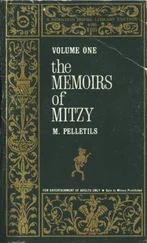Fanny Burney - Cecilia; Or, Memoirs of an Heiress. Volume 3
Здесь есть возможность читать онлайн «Fanny Burney - Cecilia; Or, Memoirs of an Heiress. Volume 3» — ознакомительный отрывок электронной книги совершенно бесплатно, а после прочтения отрывка купить полную версию. В некоторых случаях можно слушать аудио, скачать через торрент в формате fb2 и присутствует краткое содержание. Жанр: foreign_antique, foreign_prose, Зарубежные любовные романы, на английском языке. Описание произведения, (предисловие) а так же отзывы посетителей доступны на портале библиотеки ЛибКат.
- Название:Cecilia; Or, Memoirs of an Heiress. Volume 3
- Автор:
- Жанр:
- Год:неизвестен
- ISBN:нет данных
- Рейтинг книги:5 / 5. Голосов: 1
-
Избранное:Добавить в избранное
- Отзывы:
-
Ваша оценка:
- 100
- 1
- 2
- 3
- 4
- 5
Cecilia; Or, Memoirs of an Heiress. Volume 3: краткое содержание, описание и аннотация
Предлагаем к чтению аннотацию, описание, краткое содержание или предисловие (зависит от того, что написал сам автор книги «Cecilia; Or, Memoirs of an Heiress. Volume 3»). Если вы не нашли необходимую информацию о книге — напишите в комментариях, мы постараемся отыскать её.
Cecilia; Or, Memoirs of an Heiress. Volume 3 — читать онлайн ознакомительный отрывок
Ниже представлен текст книги, разбитый по страницам. Система сохранения места последней прочитанной страницы, позволяет с удобством читать онлайн бесплатно книгу «Cecilia; Or, Memoirs of an Heiress. Volume 3», без необходимости каждый раз заново искать на чём Вы остановились. Поставьте закладку, и сможете в любой момент перейти на страницу, на которой закончили чтение.
Интервал:
Закладка:
Cecilia, though shocked and frightened at the occasion, was yet by no means sorry at an order which thus precluded all conversation; unfitted for it by her own misery, she was glad to be relieved from all necessity of imposing upon herself the irksome task of finding subjects for discourse to which she was wholly indifferent, while obliged with sedulity to avoid those by which alone her mind was occupied.
The worthy Mrs Charlton heard the events of the morning with the utmost concern, but charged her grand-daughters to assist her young friend in doing the honours of her house to Mrs Delvile, while she ordered another apartment to be prepared for Cecilia, to whom she administered all the consolation her friendly zeal could suggest.
Cecilia, however unhappy, had too just a way of thinking to indulge in selfish grief, where occasion called her to action for the benefit of others: scarce a moment, therefore now did she allow to sorrow and herself, but assiduously bestowed the whole of her time upon her two sick friends, dividing her attention according to their own desire or convenience, without consulting or regarding any choice of her own. Choice, indeed, she had none; she loved Mrs Charlton, she revered Mrs Delvile; the warmest wish with which her heart glowed, was the recovery of both, but too deep was her affliction to receive pleasure from either.
Two days passed thus, during which the constancy of her attendance, which at another time would have fatigued her, proved the only relief she was capable of receiving. Mrs Delvile was evidently affected by her vigilant tenderness, but seemed equally desirous with herself to make use of the prohibition to speech as an excuse for uninterrupted silence. She enquired not even after her son, though the eagerness of her look towards the door whenever it was opened, shewed either a hope, or an apprehension that he might enter. Cecilia wished to tell her whither he was gone, but dreaded trusting her voice with his name; and their silence, after a while, seemed so much by mutual consent, that she had soon as little courage as she had inclination to break it.
The arrival of Dr Lyster gave her much satisfaction, for upon him rested her hopes of Mrs Delvile’s re-establishment. He sent for her down stairs, to enquire whether he was expected; and hearing that he was not, desired her to announce him, as the smallest emotion might do mischief.
She returned up stairs, and after a short preparation, said, “Your favourite Dr Lyster, madam, is come, and I shall be much the happier for having you under his care.”
“Dr Lyster?” cried she, “who sent for him?”
“I believe—I fancy—Mr Delvile fetched him.”
“My son?—is he here, then?”
“No,—he went, the moment he left you, for Dr Lyster,—and Dr Lyster is come by himself.”
“Does he write to you?”
“No, indeed!—he writes not—he comes not—dearest madam be satisfied, he will do neither to me ever more!”
“Exemplary young man!” cried she, in a voice hardly audible, “how great is his loss!—unhappy Mortimer!—ill-fated, and ill-rewarded!”
She sighed, and said no more; but this short conversation, the only one which had passed between them since her illness, agitated her so much, that Dr Lyster, who now came up stairs, found her in a state of trembling and weakness that both alarmed and surprised him. Cecilia, glad of an opportunity to be gone, left the room, and sent, by Dr Lyster’s desire, for the physician and surgeon who had already attended.
After they had been some time with their patient, they retired to a consultation, and when it was over, Dr Lyster waited upon Cecilia in the parlour, and assured her he had no apprehension of danger for Mrs Delvile, “Though, for another week,” he added, “I would have her continue your patient , as she is not yet fit to be removed. But pray mind that she is kept quiet; let nobody go near her, not even her own son. By the way he is waiting for me at the inn, so I’ll just speak again to his mother, and be gone.”
Cecilia was well pleased by this accidental information, to learn both the anxiety of Delvile for his mother, and the steadiness of his forbearance for himself. When Dr Lyster came down stairs again, “I shall stay,” he said, “till to-morrow, but I hope she will be able in another week to get to Bristol. In the mean time I shall leave her, I see, with an excellent nurse. But, my good young lady, in your care of her, don’t neglect yourself; I am not quite pleased with your looks, though it is but an old fashioned speech to tell you so.—What have you been doing to yourself?”
“Nothing;” said she, a little embarrassed; “but had you not better have some tea?”
“Why yes, I think I had;—but what shall I do with my young man?”
Cecilia understood the hint, but coloured, and made no answer.
“He is waiting for me,” he continued, “at the inn; however, I never yet knew the young man I would prefer to a young woman, so if you will give me some tea here, I shall certainly jilt him.”
Cecilia instantly rang the bell, and ordered tea.
“Well now,” said he, “remember the sin of this breach of appointment lies wholly at your door. I shall tell him you laid violent hands on me; and if that is not, enough to excuse me, I shall desire he will try whether he could be more of a stoic with you himself.”
“I think I must unorder the tea,” said she, with what gaiety she could assume, “if I am to be responsible for any mischief from your drinking it.”
“No, no, you shan’t be off now; but pray would it be quite out of rule for you to send and ask him to come to us?”
“Why I believe—I think—” said she, stammering, “it’s very likely he may be engaged.”
“Well, well, I don’t mean to propose any violent incongruity. You must excuse my blundering; I understand but little of the etiquette of young ladies. ‘Tis a science too intricate to be learned without more study than we plodding men of business can well spare time for. However, when I have done writing prescriptions, I will set about reading them, provided you will be my instructress.”
Cecilia, though ashamed of a charge in which prudery and affectation were implied, was compelled to submit to it, as either to send for Delvile, or explain her objections, was equally impossible. The Miss Charltons, therefore, joined them, and they went to tea.
Just as they had done, a note was delivered to Dr Lyster; “see here,” cried he, when he had read it, “what a fine thing it is to be a young man! Why now, Mr Mortimer understands as much of all this etiquette as you ladies do yourselves; for he only writes a note even to ask how his mother does.”
He then put it into Cecilia’s hand.
To Dr Lyster .
Tell me, my dear Sir, how you have found my mother? I am uneasy at your long stay, and engaged with my friend Biddulph, or I should have followed you in person.
M.D.
“So you see,” continued the doctor, “I need not do penance for engaging myself to you, when this young gentleman can find such good entertainment for himself.”
Cecilia who well knew the honourable motive of Delvile’s engagement, with difficulty forbore speaking in his vindication. Dr Lyster immediately began an answer, but before he had finished it, called out, “Now as I am told you are a very good young woman, I think you can do no less than assist me to punish this gay spark, for playing the macaroni, when he ought to visit his sick mother.”
Cecilia, much hurt for Delvile, and much confused for herself, looked abashed, but knew not what to answer.
“My scheme,” continued the doctor, “is to tell him, that as he has found one engagement for tea, he may find another for supper; but that as to me, I am better disposed of, for you insist upon keeping me to yourself. Come, what says etiquette ? may I treat myself with this puff?”
Читать дальшеИнтервал:
Закладка:
Похожие книги на «Cecilia; Or, Memoirs of an Heiress. Volume 3»
Представляем Вашему вниманию похожие книги на «Cecilia; Or, Memoirs of an Heiress. Volume 3» списком для выбора. Мы отобрали схожую по названию и смыслу литературу в надежде предоставить читателям больше вариантов отыскать новые, интересные, ещё непрочитанные произведения.
Обсуждение, отзывы о книге «Cecilia; Or, Memoirs of an Heiress. Volume 3» и просто собственные мнения читателей. Оставьте ваши комментарии, напишите, что Вы думаете о произведении, его смысле или главных героях. Укажите что конкретно понравилось, а что нет, и почему Вы так считаете.












